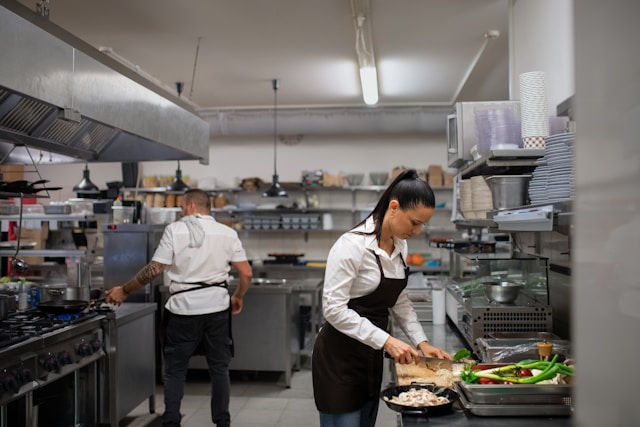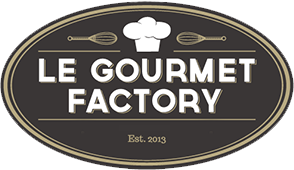Commercial Kitchen for Rent: Choosing the Right Space for Your Food Business
Looking for a commercial kitchen for rent? Discover how a right setup can cut costs, boost efficiency, and drive growth for your food business

Continue exploring the next articles in this series:
Discover how ghost kitchens cut costs, expand reach, and elevate your food business in a delivery-focused market.
Or navigate back to explore other related content :
Want to grow your food business? Learn how ghost kitchens can cut costs, expand reach, and maximize delivery potential in…
01: Introduction
As ghost kitchens reshape the food industry, more entrepreneurs are seeking a commercial kitchen for rent to harness the flexibility and efficiency these spaces provide. But with so many options, finding the ideal kitchen can be a challenge. From shared kitchens to private setups, choosing the right commercial kitchen is essential for maximizing productivity, keeping costs down, and creating an ideal environment for a delivery-focused business.
In this article, we’ll guide you through the key factors in renting a commercial kitchen, helping you navigate the options to find the best fit for your business.
02: Understanding the Different Types of Commercial Kitchens
Finding the right commercial kitchen for rent starts with knowing the types available. Each type of kitchen offers distinct advantages depending on your business model:
- Shared Commercial Kitchens: Shared kitchens allow multiple brands to operate in the same space, sharing equipment and resources. This setup is ideal for startups seeking lower costs and flexibility. Shared kitchens can also foster collaboration and networking within the food community.
- Private Commercial Kitchens: For those who need exclusive space or have higher production demands, private kitchens offer complete control over the workspace. While more costly than shared kitchens, private rentals provide uninterrupted access to equipment and storage, making them a popular choice for established brands or high-volume businesses.
- Commissary Kitchens: Commissary kitchens are shared facilities designed for food businesses, especially mobile units like food trucks and ghost kitchens. Many commissary kitchens come pre-equipped and often have access to cold storage, loading areas, and parking, making them ideal for food brands with specific logistics needs.
03: Key Benefits of Renting a Commercial Kitchen
Renting a commercial kitchen brings several advantages that align with the benefits of ghost kitchens. Here are some key reasons why a rented kitchen can boost your food business:
- Cost Savings: Renting a kitchen allows you to operate without the high startup costs associated with building a kitchen from scratch. Shared spaces, in particular, offer lower monthly fees, helping entrepreneurs manage cash flow effectively.
- Flexibility: Renting provides flexibility in terms of lease length and location. This is especially beneficial for ghost kitchens or new brands testing different markets.
- Efficiency: Commercial kitchens are designed with high-efficiency workflows, enabling faster production. With access to professional equipment, food businesses can produce high-quality meals consistently and meet delivery demands.
- Scalability: Renting allows food entrepreneurs to scale up as their business grows. By starting with a shared or commissary kitchen, businesses can build demand and then transition to a private kitchen or additional facilities.
04: Evaluating Your Needs: Finding the Right Kitchen Fit
When searching for a commercial kitchen for rent, assessing your business’s needs is essential. Here are some factors to consider:
- Location: Proximity to your target delivery area is critical for ghost kitchens and delivery-only brands, as it helps minimize delivery times and improves customer satisfaction.
- Equipment Needs: Evaluate the equipment provided in each rental kitchen. Some commercial kitchens come fully equipped with essentials like ovens, prep tables, and refrigeration, while others require businesses to bring in their own specialized tools.
- Lease Terms: Look for flexible lease terms that fit your business model. Short-term leases allow you to test out a market, while long-term leases provide stability if you’re already established in a location.
- Storage Space: Storage options, such as walk-in coolers or dry storage, are essential for managing inventory and ensuring product freshness. Make sure the kitchen has enough space to support your needs.
05: Tips for Finding a Commercial Kitchen for Rent
Finding the right commercial kitchen can be time-consuming, but these tips can help streamline your search:
- Research Local Directories: Many cities have culinary directories that list available commercial kitchens, including their amenities, rates, and availability.
- Join Food Industry Networks: Networking with local food entrepreneurs or joining food business groups can help you get referrals and insights into available commercial kitchens.
- Tour Potential Kitchens: Whenever possible, schedule tours of the kitchens you’re considering. Touring gives you a firsthand look at the space, equipment quality, and cleanliness.
- Negotiate Lease Terms: If you plan to stay long-term, negotiating a lease that fits your budget and provides flexibility can make a significant difference.
06: Is Renting a Commercial Kitchen Right for Your Business?
Whether you’re launching a ghost kitchen, expanding an existing brand, or starting a new culinary venture, renting a commercial kitchen offers an efficient way to grow. By choosing the right kitchen setup and location, you can optimize production, reach new customers, and reduce costs associated with traditional restaurant spaces.
If you’re ready to explore how a commercial kitchen for rent can elevate your food business, we’re here to help. Whether you’re curious about what Le Gourmet Factory has to offer or are ready to take the next step, we’ve got you covered.
- Want to Learn More? Discover the benefits of our state-of-the-art kitchens and flexible rental options tailored to meet diverse business needs.
- Ready to Get Started? If you know what you need and are eager to begin, contact us today to secure your ideal kitchen space and bring your vision to life.
07: Conclusion
Renting a commercial kitchen opens doors to growth, efficiency, and flexibility in today’s dynamic food industry. By choosing the right space—whether it’s a shared setup, private kitchen, or commissary—you can reduce costs, scale your business, and focus on what you do best: delivering quality food to satisfied customers.
As you consider your options, remember that the right kitchen isn’t just about space—it’s about finding a supportive environment that aligns with your vision. Whether you’re still exploring or ready to dive in, Le Gourmet Factory is here to help you find the perfect fit. Let’s work together to create a kitchen space that fuels your success.
- FAQ
fREQUENTLY ASKED QUESTIONS
What is a commercial kitchen for rent, and how does it work?
A commercial kitchen for rent is a licensed facility equipped with professional-grade appliances and storage options. Businesses rent the space hourly, monthly, or long-term to prepare food in a compliant, efficient environment. It eliminates the need for costly kitchen construction.
What are the types of commercial kitchens available for rent?
- Shared Kitchens: Cost-effective and great for startups.
- Private Kitchens: Exclusive, uninterrupted workspace for high-volume operations.
- Commissary Kitchens: Designed for mobile food units like food trucks and ghost kitchens, offering added logistics support.
What factors should I consider when renting a commercial kitchen?
- Location: Close to your target market to minimize delivery times.
- Equipment: Ensure the kitchen has the appliances you need or space for your tools.
- Lease Terms: Look for flexible options that align with your business goals.
- Storage: Check for adequate cold, dry, and freezer storage.
How much does it cost to rent a commercial kitchen?
Costs vary based on the type of kitchen, location, and amenities. Shared kitchens often start at $15–$50/hour, while private kitchens or commissaries may have monthly fees ranging from $300 to $1,500.
Why should I rent a commercial kitchen instead of building my own?
Renting is cost-effective, provides flexibility, and offers access to professional-grade equipment without the high upfront costs of building a kitchen. It’s ideal for startups, ghost kitchens, or businesses testing new markets.
Continue exploring the next articles in this series:
Wondering what a ghost kitchen is? Discover the game-changing concept that’s redefining the food industry and boosting business potential.
Discover how ghost kitchens cut costs, expand reach, and elevate your food business in a delivery-focused market.
Or navigate back to explore other related content :
Want to grow your food business? Learn how ghost kitchens can cut costs, expand reach, and maximize delivery potential in…
- 176A South Van Brunt Street Englewood, NJ 07631
Copyright © 2023 Le Gourmet Factory. All Rights Reserved. Website Design, SEO and Internet Marketing by Creative Click Media.



